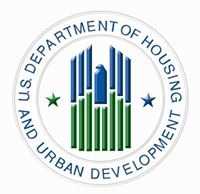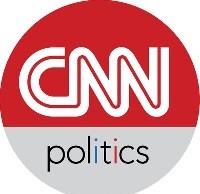Funds for sanitation, transportation to health units and testing, childcare, food, and medical supplies
WASHINGTON – RealEstateRama – U.S. Department of Housing and Urban Development Secretary Ben Carson today announced the allocation of $380 million in supplemental administrative fee funding to all Public Housing Authorities (PHA), including Moving to Work (MTW) PHAs. The two months of additional funding may be used for traditional administrative fees as well as for new costs related to protecting assisted families and employees throughout this coronavirus pandemic. The funding, made available by the CARES Act legislation President Trump signed into law on March 27, 2020, will be awarded to PHAs across the Nation.
“We must do everything in our power to protect all American families from this invisible enemy, including our vulnerable in the Housing Choice Voucher Program,” said Secretary Carson. “These new flexibilities and additional funds will properly equip Public Housing Authorities across the country with the resources they need to combat this virus.”
The Housing Choice Voucher Program (HCV) includes the Mainstream Program, which provides tenant-based vouchers that serve households that include a non-elderly person with a disability and serves over 2.4 million families.
The new eligible coronavirus-related activities include, but are not limited to, the following:
- Procuring cleaning supplies and/or services to maintain safe and sanitary HCV units, including common areas of PHA-owned Project Based Voucher (PBV) projects.
- Relocation of participating families to health units or other designated units for testing, hospitalization, or quarantine, or transportation to these locations to limit the exposure that could be caused by using mass transportation.
- Additional costs to supportive services vendors incurred due to coronavirus.
- Costs to retain or increase owner participation in the HCV Program, such as incentive or retention costs (e.g. the PHA offers owner an incentive payment to participate in recognition of added difficulties of making units available for HCV families to rent while stay-at-home orders or social distancing practices are in effect).
- Costs for providing childcare for the children of PHA staff that would not have otherwise been incurred (e.g. children are at home due to school closings, PHA staff are working outside of regular work schedules, etc).
A list of allocations can be found here.
After President Trump signed the CARES Act into law, HUD acted immediately to allocate its first wave of funding, over $3 billion to assist communities and non-profits, help protect the homeless and Americans with compromised immune systems, and assist Tribal communities in their COVID-19 response efforts. Last week, HUD announced an additional $685 million for PHAs to prepare for, prevent, and respond to a coronavirus outbreak for the public housing program.
“HUD is committed to assisting PHAs during this time so that assisted families can stay safe and healthy,” said Hunter Kurtz, Assistant Secretary for Public and Indian Housing. “Providing these additional funds to PHAs will give them more tools to address local needs and respond to the Coronavirus pandemic as effectively as possible.”
For more information on HUD’s response to the Coronavirus pandemic and the actions the Department has taken, please visit Hud.gov/coronavirus. Public Housing Authorities across the Nation have jumped into action to help assist their tenants and their communities during this unprecedented time. Read more about their stories featured in HUD’s Neighbors Helping Neighbors campaign, here.
###
HUD’s mission is to create strong, sustainable, inclusive communities and quality affordable homes for all.
More information about HUD and its programs is available at www.hud.gov and https://espanol.hud.gov.
For information about Opportunity Zones visit: https://opportunityzones.hud.gov/
You can also connect with HUD on social media and follow Secretary Carson on Twitter and Facebook or sign up for news alerts on HUD’s Email List.
HUD Public Affairs
(202) 708-0685








